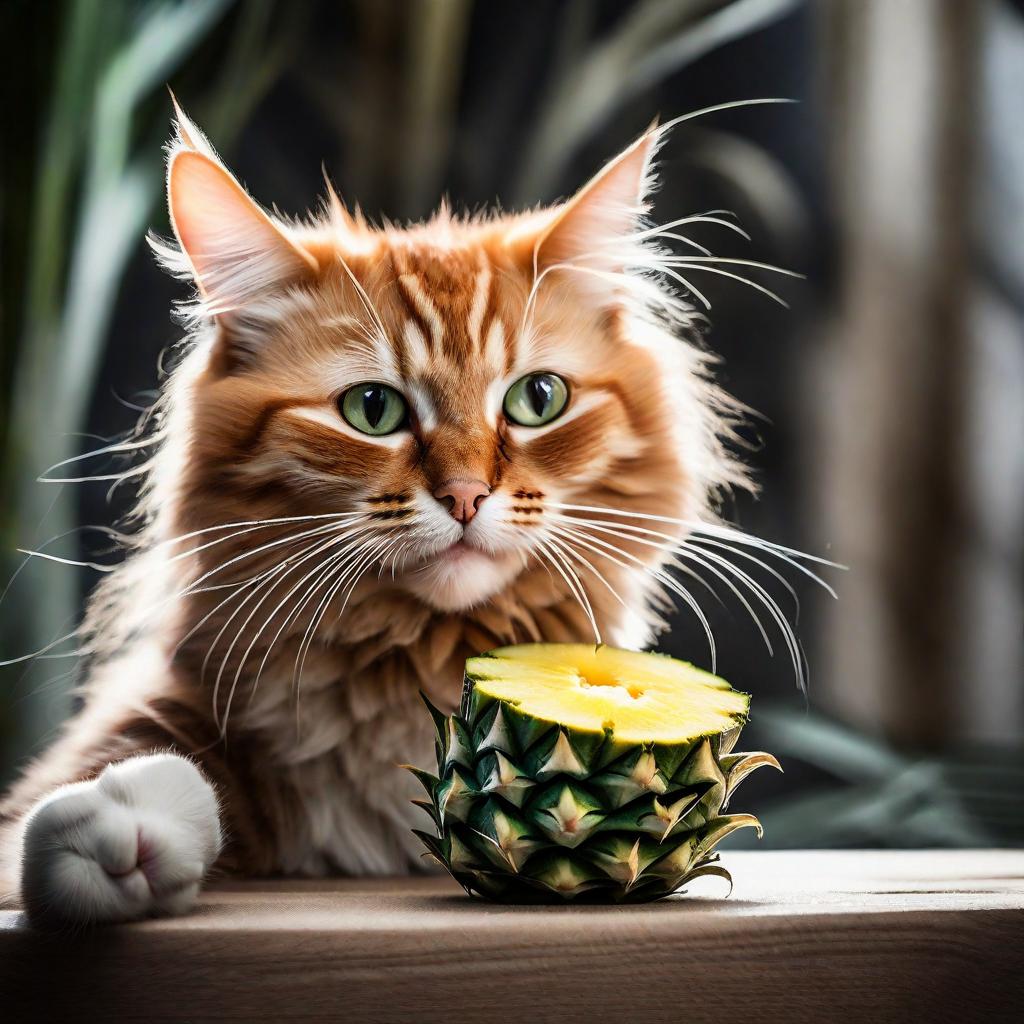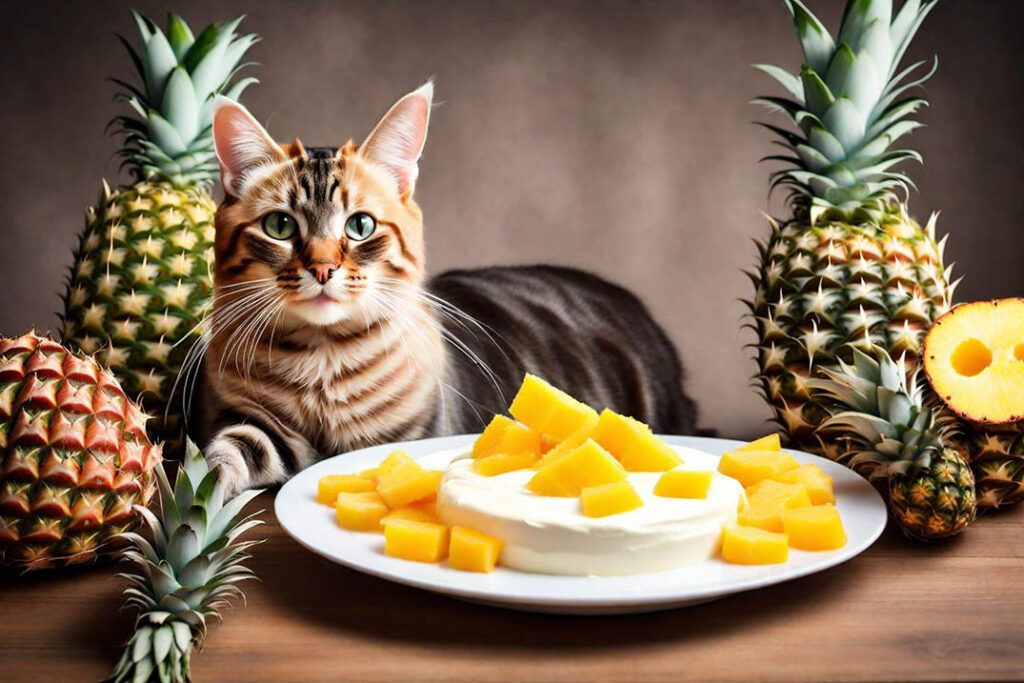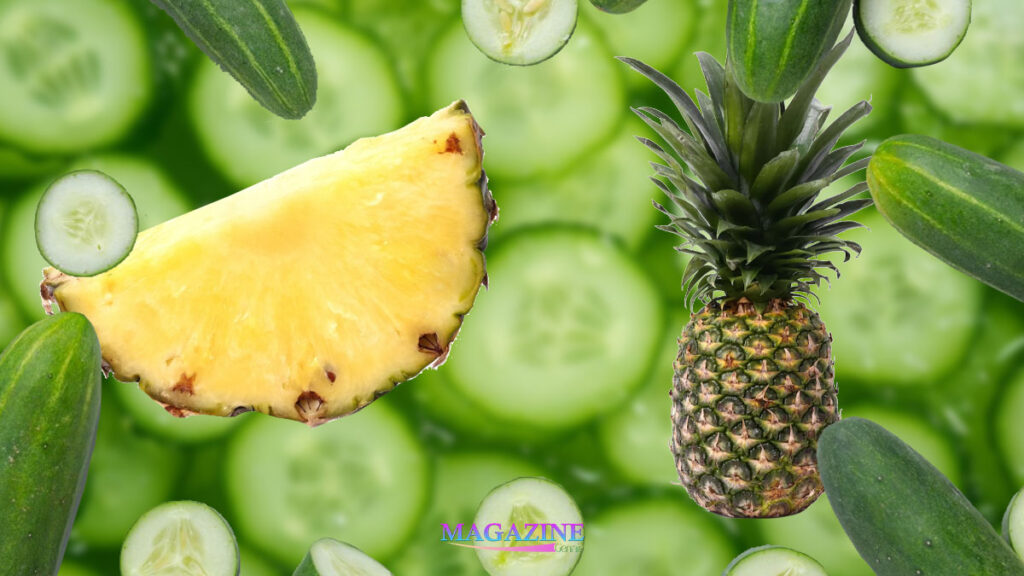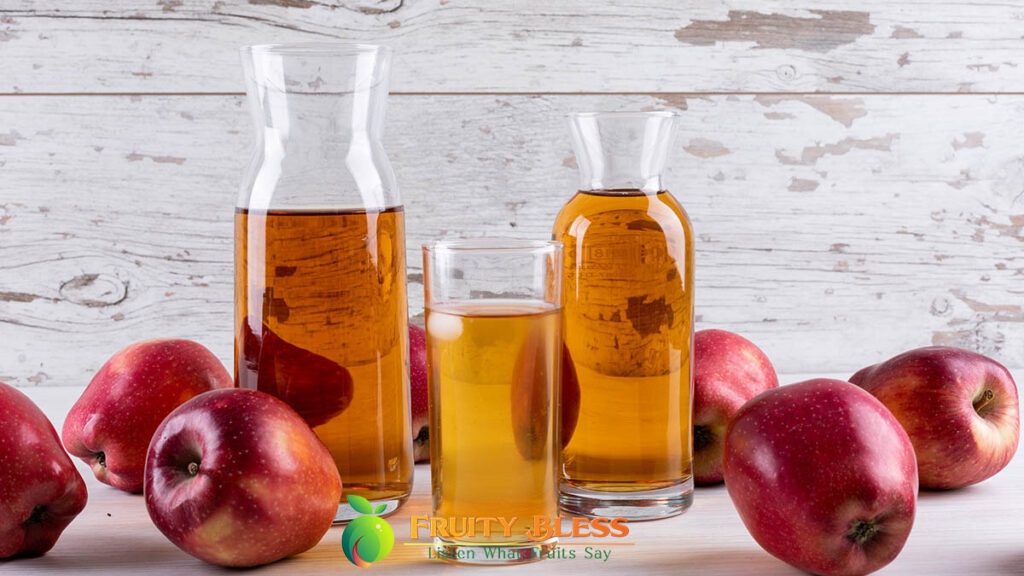While pineapple itself isn’t inherently toxic to cats in small quantities, it’s generally best to avoid giving them any food containing pineapple, including yogurt, cake, tops, tarts, and pineapple ham. Here’s a detailed breakdown of the potential risks:
Table of Contents
1. Digestive Issues:
- Cats are obligate carnivores, meaning their digestive system is primarily designed to process animal protein.
- Pineapple, with its high fiber content and bromelain enzyme, can be difficult for them to digest, leading to diarrhea, vomiting, and stomach discomfort.
2. Excessive Sugar:
- Many pineapple-based treats, especially commercially prepared ones, contain high amounts of added sugar.
- This is unhealthy for cats, as it can contribute to weight gain, obesity, and even diabetes.
3. Harmful Ingredients:
- Pineapple cakes, tarts, and other similar treats often contain ingredients like chocolate, xylitol, and artificial sweeteners that are toxic to cats.
- Even seemingly harmless ingredients like dairy products can cause lactose intolerance in many cats, leading to digestive problems.
4. Choking Hazard:
- Pineapple tops, with their spiky leaves, and chunks of fruit present in some treats can pose a choking hazard, especially for young or smaller cats.
Therefore, it’s safer to avoid offering your cat any food containing pineapple. If you’re looking for healthy treats, consult your veterinarian for recommendations.
Specific Considerations:
- Pineapple Yogurt: Plain yogurt is generally safe in small amounts for some cats, but adding pineapple increases the sugar content and introduces the risk of lactose intolerance.
- Pineapple Cake: The combination of sugar, potential chocolate content, and other ingredients makes this a definite no-go.
- Pineapple Tops: The tough texture and spiky leaves pose a choking hazard and offer no nutritional benefit.
- Pineapple Tarts: Similar to cakes, these contain excessive sugar and potentially harmful ingredients.
- Pineapple Ham: While the ham itself might be okay in very small quantities, the combination with pineapple is not recommended.

Can Cats Eat Pineapple Yogurt:
Feeding cats pineapple yogurt is not recommended. While plain yogurt in small amounts can be safe for cats due to its probiotic benefits, the addition of pineapple introduces potential risks. Pineapple contains enzymes that may be difficult for cats to digest, leading to gastrointestinal upset. Moreover, the high sugar content in flavored yogurts can contribute to weight gain and other health issues in felines. It’s best to avoid offering pineapple yogurt to cats and stick to cat-friendly treats.
Can Cats Eat Pineapple Cake:
Cats should not be given pineapple cake as it is not a suitable food for feline consumption. Pineapple cake typically contains ingredients like sugar, flour, and other additives that are not part of a cat’s natural diet. The high sugar and fat content in cake can lead to obesity, diabetes, and digestive problems in cats. Additionally, certain ingredients like raisins or nuts commonly found in cakes can be toxic to cats. It’s essential to provide cats with a balanced diet tailored to their nutritional needs and avoid feeding them human desserts like pineapple cake.
See also : Can Guinea Pigs Eat Pineapple?
Can Cats Eat Pineapple Tops:
Pineapple tops, also known as pineapple leaves, are not recommended for cats. While they are not toxic, the fibrous nature of pineapple tops can be challenging for cats to digest and may pose a risk of choking or intestinal blockages. Additionally, the milky sap released by pineapple leaves could trigger allergic reactions in some felines. To ensure the safety and well-being of your cat, it’s best to prevent them from consuming pineapple tops and stick to cat-friendly foods.
Can Cats Eat Pineapple Tarts:
Pineapple tarts are not suitable for cats and should not be fed to them. These sweet treats typically contain high levels of sugar, fats, and other ingredients that are not part of a cat’s natural diet. Excessive consumption of sugary foods like pineapple tarts can lead to obesity, dental issues, and diabetes in cats. It’s crucial to provide cats with a balanced diet that meets their nutritional requirements and avoid offering them human snacks like pineapple tarts.
Can Cats Eat Pineapple Ham:
Feeding cats pineapple ham is not recommended due to several reasons. While plain ham in small amounts may be safe for cats as an occasional treat, the addition of pineapple introduces potential risks. Pineapple contains enzymes that may be difficult for cats to digest, leading to gastrointestinal upset. Moreover, the high salt content in ham can be harmful to cats and may contribute to health issues like dehydration or kidney problems. It’s best to avoid offering pineapple ham to cats and opt for cat-friendly treats that are safe and nutritious for feline consumption.
Can Cats Eat Pineapple Leaves?

Feeding pineapple leaves to cats is not recommended due to several reasons. Pineapple leaves contain fibrous material that can be difficult for cats to digest and may pose a risk of causing choking or blocking their digestive tracts. Although the leaves themselves are not toxic to cats, they may release a milky white sap that can trigger an allergic reaction in some felines. Therefore, it is best to prevent cats from consuming pineapple leaves to protect their health and wellbeing.
While pineapple leaves aren’t inherently toxic to cats, they are generally not recommended for them to eat. Here’s why:
1. Difficult to Digest:
- Pineapple leaves have a waxy, thick, and rubbery texture due to the presence of bromelain, an enzyme.
- This makes them difficult for cats to digest, potentially leading to digestive issues like vomiting, diarrhea, or even intestinal blockages if ingested in large quantities.
2. Choking Hazard:
- The large size of pineapple leaves poses a choking hazard, especially for younger or smaller cats.
3. Allergic Reactions:
- Although uncommon, the bromelain enzyme and other components in the leaves can trigger allergic reactions in some cats, causing symptoms like swelling, itching, or difficulty breathing.
4. Unnecessary:
- Cats are obligate carnivores, meaning their nutritional needs are primarily met through animal protein.
- Pineapple leaves offer no significant nutritional value for cats and can potentially cause harm.
Therefore, it’s best to avoid letting your cat eat pineapple leaves. If you notice your cat nibbling on leaves or showing signs of digestive upset, consult your veterinarian promptly.
Can Cats Eat Pineapple Juice?
Cats can eat pineapple in moderation as an occasional treat. Fresh, natural pineapple is safe for cats, but it should be given in small pieces without the skin and spikes. Pineapple juice is not recommended for cats due to its high sugar content, which can lead to weight gain and gastrointestinal issues. It’s important to avoid processed pineapple with added sugars or artificial flavors.
While pineapple is not toxic to cats, it should only be offered sparingly to prevent digestive upset. Remember to monitor your cat for any adverse reactions and consult a veterinarian if needed.
While pineapple itself is not toxic to cats in small amounts, it’s highly recommended that you do not give your cat pineapple juice. Here’s why:
1. High Sugar Content:
- Pineapple juice is extremely high in sugar, which is unnecessary and potentially harmful for cats.
- Excessive sugar intake can lead to weight gain, obesity, and even diabetes in cats.
2. Lack of Nutritional Value:
- Pineapple juice doesn’t offer any essential nutrients that cats need for their health.
- They are obligate carnivores and primarily require animal protein for their dietary needs.
3. Potential Digestive Upset:
- The high sugar content in pineapple juice can disrupt your cat’s digestive system, leading to diarrhea, vomiting, or stomach discomfort.
4. Added Ingredients:
- Commercially available pineapple juice often contains added sugars, artificial flavors, and preservatives which can be harmful to your cat’s health.
5. Unattractive Taste:
- Cats lack the taste receptors for sweetness, so they likely wouldn’t find the juice appealing anyway.
Therefore, it’s best to stick to fresh water as your cat’s primary source of hydration. If you’re concerned about your cat’s dietary needs, consult your veterinarian for advice on healthy treats or supplements.
Conclusion:
Remember, your cat’s health is the priority. When unsure about a food item, it’s always best to err on the side of caution and consult your veterinarian. They can provide tailored advice based on your cat’s individual needs and dietary restrictions.


